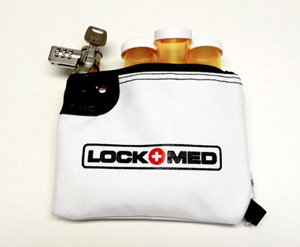Medical Cannabis will be regulated by July 1, 2016 On April 2015, Gov. Inslee signed a new medical cannabis law which finally regulated medical cannabis in Washington State. Since 1998, medical cannabis and the medical cannabis industry has been unregulated. This meant no governmental agency was checking to see if the product was safe or contained pesticides or if the business paid its taxes. Media described our situation as the "wild west." Surprisingly dispensaries in Washington State have been illegal under both State and Federal laws - and if licensed by the state will only become legal on July 1, 2016. The medical cannabis industry - particularly here in compassionate and enterprising Seattle - has been allowed to exist because of concern about patient access to safe medicine.
Green Buddha wholeheartedly supports I502 and embraces regulation. But we also believe that the transition will be difficult particularly for sincere patients - cancer patients, those with neurological disorders, those on disability, and those on limited incomes. We believe the new medical cannabis law was heavily lobbied and crafted by prominent I502 licensees for their success. Regulation is good - we need pesticides testing and better assurances as to safety. But we also know that part of the 'miracle' of medical cannabis is cost and we fear that costs of being a patient will only increase.
The American health care system's ability to delivery cost-effective health care is absymal; we've got the most expensive among industrial nations - and we're not in the top twenty health care systems. The current 'Green Ru$h' mentality and the state's desire for taxes adds to the problem. Green Buddha remains very concerned as to the potential effects of the new law. Additionally we see the state closing medical dispensaries even as the state has not yet opened the "alloted" 334 stores- which only drives patients underground as they attempt to locate their medicine.
RegistryGreen Buddha's greatest concerns with the new law lie with the voluntary registry. The registry is designed to be accessible by law enforcement. Patients on the registry could also have their grows examined for verfication of compliance. While each patient must weigh an individual cost-benefit analysis, we believe the loss of privacy rights and the implications of being forced to admit violation of federal laws - at the very moment when any adult in our state can utilize cannabis - is very concerning and not worthy. The Washington ACLU testified against the registry and noted it agrecious nature. The ACLU also noted the state could be sued for the registry and wanted the costs of such suits to be considered in keeping the registry. Several prominent cannabis lawyers are also filing suits against the state concerning the violation of privacy (HIPPA) laws although it remains to be seen whether these suits are successful. Those chosing to be on the registry get the benefits of being allowed to grow more plants, have more medicinal products in one's home.
Authorization The new authorization form is available now and is in effect.
Green Buddha's major concern with the new authorization asks the doctors to note the cannabis plant amounts which is a step closer to looking like they are prescribing cannabis - which is federally illegal. In general, doctors also have a phobia of being connected to cannabis plants. Green Buddha believes that this new form will further hinder the patient-doctor relationship.
Newly Regulated Medical Cannabis in Washington State by July 1, 2016
- Better Testing
- Medical Cannabis
- Costs
- Registry
Perhaps one of the benefits of regulating medical cannabis is pesticides testing, minimally for the DOH determined "medical cannabis."
Currently most medical cannabis and 100% of the state's regulated I502 cannabis has been grown with pesticides. None of the final consumable cannabis products have ever been verified as not containing pesticidal residues.
During our time as a storefront, Green Buddha was the only dispensary to do full pesticides testing and we have waited five years to see the state initiate such. We're still waiting.
The Washington State Department of Health is currently defining medical cannabis. Medical cannabis products should be allowed to be purchased and consumed by all adults, and not only by patients.
High CBD cannabis may be untaxed and thus made more widely available to the general public, the authorized patient and the registered patient. Green Buddha believes this would be fantastic and should also result in lower priced CBD products.
The new law will increase patient costs. The cost of authorizations may go up, as fewer doctors will be willing to authorize - with the new authorization - and "pot doctor" clinics are no longer allowed.
The cost of medicine, too almost certainly will be immediately negatively impacted. Those used to buying at an unregulated dispensary have been paying at best sales tax (9.5% in Seattle). The new medical cannabis law applies the 37% excise taxes to medical cannabis in addition to the sales tax. Registered patients will be excused the sales tax only. The exception would be the cost of high CBD medicine.
Patients legally will not be allowed to grow as many plants. Currently until July 1, 2016 each patient may grow 15 plants. Thereafter unregistered patients will be allowed to grow 4 plants. Patients on a registry may grow 6 plants, unless their doctor specifies more plants (up to 15 plants total - specified on the authorization). Patients not in a new 4 patient co-op may not share their product with other patients so there will be less sharing and this too leads to more expensive medicine.
Green Buddha encourages all patients to grow some medicine.
The registry would appear to violate the patient privacy rights and HIPPA. We probably have not seen the last bit of legislation with respect to the medical cannabis patient registry. The registry remains the biggest source of irritation amoung the medical cannabis community. Nobody wants law enforcement to know where they live. Few patients we believe will want to take the chance on having law enforcem.
The patient registry will offer arrest protection for the patients willing to be on it. And being registered will excuse patients from paying the minor sales tax but not the more expensive excise taxes.
The affirmative defense is still maintained for patients not on the registry, but they would not have arrest protection. In addition if a patient not on a registry - in order to maintain that affirmative defense - must show their authorization to an office if the engagement warrants such.
Stay tuned. Green Buddha thinks we've not seen the final word on the registry.


